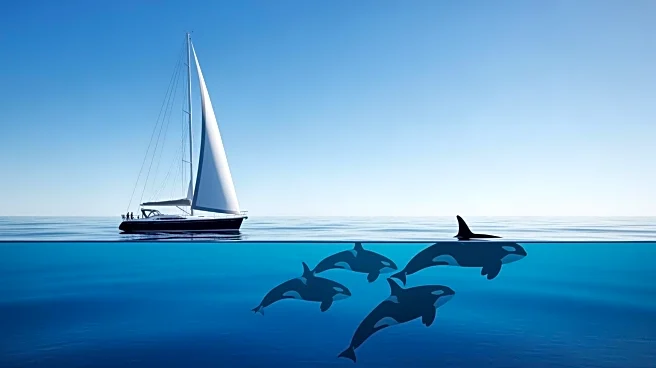What's Happening?
Since 2020, orcas have been increasingly attacking boats in the Strait of Gibraltar, causing alarm among sailors. These apex predators have been biting rudders, ramming, and tipping boats, with some incidents
leading to vessels sinking. The frequency of these attacks has been rising, creating a terrifying experience for those navigating these waters. While some narratives suggest a revenge-driven motive by the orcas, scientists are skeptical and believe the explanation might be more complex.
Why It's Important?
The ongoing orca attacks have significant implications for maritime activities in the affected regions. Sailors and fishing industries face increased risks, potentially leading to higher insurance costs and changes in sailing routes to avoid encounters. The phenomenon also raises questions about marine behavior and environmental changes that might be influencing orca actions. Understanding the root cause is crucial for developing strategies to mitigate these interactions and ensure safety at sea.
What's Next?
Researchers are likely to continue studying the behavior of orcas to determine the underlying reasons for these attacks. Potential responses could include developing deterrents or altering sailing practices to minimize encounters. Stakeholders such as maritime authorities and environmental groups may collaborate to address the issue, balancing safety concerns with conservation efforts.
Beyond the Headlines
The orca attacks highlight broader environmental and ecological challenges, including the impact of human activities on marine life. The situation may prompt discussions on marine conservation and the need for sustainable practices to protect ocean ecosystems. Additionally, it underscores the importance of understanding animal behavior in the context of changing environmental conditions.










